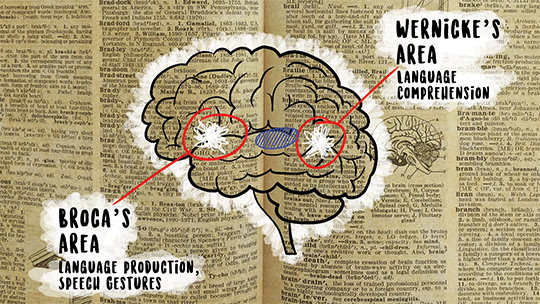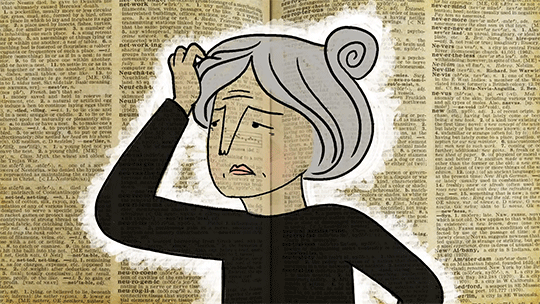Text
you will be okay. you will be okay. you will be okay. you will be okay. you will be okay. you will be okay. you will be okay. you will be okay. you will be okay. you will be okay. you will be okay. you will be okay. you will be okay. you will be okay. you will be okay.
88K notes
·
View notes
Text
Wow. It's been one heck of a long time since I was posting regularly on here! Some quick updates: •Miraculously, in spite of a 103 degree fever and the worst case of the flu, I passed all my finals and finished my junior year with two 4.0 semesters. I hustled my butt off and kept pushing through it all and I could not be more proud of myself. •I am currently set up to take the GRE in July (about a week from today), August, and September. •I just got back from a study abroad trip to Ireland, which I did for my certificate program. I attended the 9th Disability Law Summer School in Galway, Ireland and it was an incredibly interesting experience! One of the presenters was an SLP who discussed Informal Communication (aka Nonverbal Communication) and my SLP2B friend and I were OBSESSED with her talk. She was so inspiring. •I just found out that the research I have been working on for 2 years with a grad student and professor got accepted to be a poster presentation at the ASHA convention this Fall!!! I am still over the moon about this!! I'm not sure if I will be able to attend (especially since I recently poured all of that money into Ireland), but I'm hoping I can figure something out so I can go. This would be a wonderful opportunity for me to be at ASHA, not only as a student but as the author of one of the presentations! Hope everyone's doing well!
1 note
·
View note
Photo

Auguste Deter, the first described case of what was eventually named “Alzheimer’s Disease” (Photo, 1902).
399 notes
·
View notes
Photo

Elocution. A system of elocution, with special reference to gesture, to the treatment of stammering, and defective articulation. 1841.
128 notes
·
View notes
Text
Aphasia: The disorder that makes you lose your words

It’s hard to imagine being unable to turn thoughts into words. But, if the delicate web of language networks in your brain became disrupted by stroke, illness or trauma, you could find yourself truly at a loss for words. This disorder, called “aphasia,” can impair all aspects of communication. Approximately 1 million people in the U.S. alone suffer from aphasia, with an estimated 80,000 new cases per year. About one-third of stroke survivors suffer from aphasia, making it more prevalent than Parkinson’s disease or multiple sclerosis, yet less widely known.

There are several types of aphasia, grouped into two categories: fluent (or “receptive”) aphasia and non-fluent (or “expressive”) aphasia.

People with fluent aphasia may have normal vocal inflection, but use words that lack meaning. They have difficulty comprehending the speech of others and are frequently unable to recognize their own speech errors.

People with non-fluent aphasia, on the other hand, may have good comprehension, but will experience long hesitations between words and make grammatical errors. We all have that “tip-of-the-tongue” feeling from time to time when we can’t think of a word. But having aphasia can make it hard to name simple everyday objects. Even reading and writing can be difficult and frustrating.

It’s important to remember that aphasia does not signify a loss in intelligence. People who have aphasia know what they want to say, but can’t always get their words to come out correctly. They may unintentionally use substitutions, called “paraphasias” – switching related words, like saying dog for cat, or words that sound similar, such as house for horse. Sometimes their words may even be unrecognizable.

So, how does this language-loss happen? The human brain has two hemispheres. In most people, the left hemisphere governs language. We know this because in 1861, the physician Paul Broca studied a patient who lost the ability to use all but a single word: “tan.” During a postmortem study of that patient’s brain, Broca discovered a large lesion in the left hemisphere, now known as “Broca’s area.” Scientists today believe that Broca’s area is responsible in part for naming objects and coordinating the muscles involved in speech. Behind Broca’s area is Wernicke’s area, near the auditory cortex. That’s where the brain attaches meaning to speech sounds. Damage to Wernicke’s area impairs the brain’s ability to comprehend language. Aphasia is caused by injury to one or both of these specialized language areas.
Fortunately, there are other areas of the brain which support these language centers and can assist with communication. Even brain areas that control movement are connected to language. Our other hemisphere contributes to language too, enhancing the rhythm and intonation of our speech. These non-language areas sometimes assist people with aphasia when communication is difficult.

However, when aphasia is acquired from a stroke or brain trauma, language improvement may be achieved through speech therapy. Our brain’s ability to repair itself, known as “brain plasticity,” permits areas surrounding a brain lesion to take over some functions during the recovery process. Scientists have been conducting experiments using new forms of technology, which they believe may encourage brain plasticity in people with aphasia.
Meanwhile, many people with aphasia remain isolated, afraid that others won’t understand them or give them extra time to speak. By offering them the time and flexibility to communicate in whatever way they can, you can help open the door to language again, moving beyond the limitations of aphasia.
From the TED-Ed Lesson Aphasia: The disorder that makes you lose your words - Susan Wortman-Jutt
Animation by TED-Ed
3K notes
·
View notes
Photo

07.05.17 - anatomy exam tomorrow!!!!
had to move over to bed as desk ran out of space…just like my brain ahaha…not even joking. so so so nervous for these exams
151 notes
·
View notes
Photo

the quote that struck me most from this post. if it’s worth it, fight for it.
2K notes
·
View notes
Photo



February 9, 2016 //
Last night I made flash cards for my phonetics class because I had a quiz on vowels this morning. I was up a little later than I wanted to be to just to make them, but I had to be able to describe them and I was nervous, haha. The quiz ended up being easy and only on the front vowels. I got a 19/20. ✾꒡ .̮ ꒡✾
160 notes
·
View notes
Photo

This is what Speech Pathologists do. This is why we’re here.
In 4 years, I will be one of them. Officially. And I just can’t wait. :)
But first, I must shed sweat and tears to achieve such a goal. Passion, prayers and determination are all I’ve got to survive.
#thank you for this#i needed this#and I love this movie#which only makes it better#the king's speech#slp#inspo
67 notes
·
View notes
Text
What is a speech-language pathologist’s favorite food?
-
-
-
BROCA-li
-
omg i need a life.
49 notes
·
View notes
Photo








Swallowing Study Prep! I ruin different thickness’ and textures of food with barium. Dysphagia patients have video fluoroscopy swallowing studies to identify if they have trouble swallowing, which aspect of their swallowing is problematic, which textures are manageable for them, if they’ve improved or deteriorated in swallowing, if certain swallowing techniques can help with their swallows, and some GI stuff too.
14 notes
·
View notes





